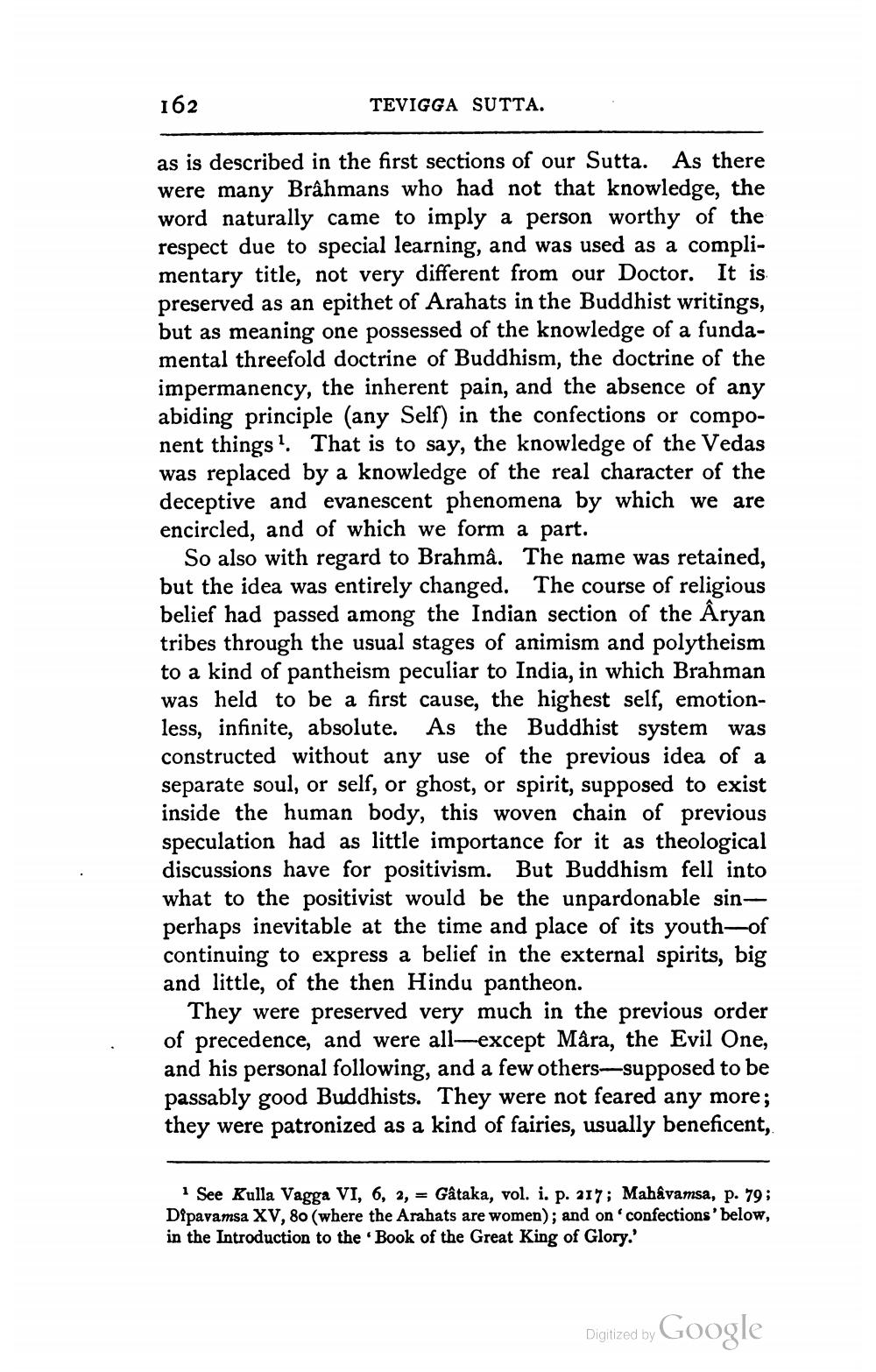________________
162
TEVIGGA SUTTA.
as is described in the first sections of our Sutta. As there were many Brâhmans who had not that knowledge, the word naturally came to imply a person worthy of the respect due to special learning, and was used as a complimentary title, not very different from our Doctor. It is preserved as an epithet of Arahats in the Buddhist writings, but as meaning one possessed of the knowledge of a fundamental threefold doctrine of Buddhism, the doctrine of the impermanency, the inherent pain, and the absence of any abiding principle (any Self) in the confections or component things. That is to say, the knowledge of the Vedas was replaced by a knowledge of the real character of the deceptive and evanescent phenomena by which we are encircled, and of which we form a part.
So also with regard to Brahmâ. The name was retained, but the idea was entirely changed. The course of religious belief had passed among the Indian section of the Aryan tribes through the usual stages of animism and polytheism to a kind of pantheism peculiar to India, in which Brahman was held to be a first cause, the highest self, emotionless, infinite, absolute. As the Buddhist system was constructed without any use of the previous idea of a separate soul, or self, or ghost, or spirit, supposed to exist inside the human body, this woven chain of previous speculation had as little importance for it as theological discussions have for positivism. But Buddhism fell into what to the positivist would be the unpardonable sinperhaps inevitable at the time and place of its youth-of continuing to express a belief in the external spirits, big and little, of the then Hindu pantheon.
They were preserved very much in the previous order of precedence, and were all-except Mâra, the Evil One, and his personal following, and a few others-supposed to be passably good Buddhists. They were not feared any more; they were patronized as a kind of fairies, usually beneficent,
1 See Kulla Vagga VI, 6, 2, Gâtaka, vol. i. p. 217; Mahâvamsa, p. 79; Dipavamsa XV, 80 (where the Arahats are women); and on 'confections' below, in the Introduction to the Book of the Great King of Glory.'
Digitized by
Google




